Ever pulled a shot that tasted more like a lemon than a rich, velvety espresso? If your cup is delivering a sour punch instead of a balanced blend, you’re likely dealing with under-extraction. This common issue can leave your espresso tasting thin, acidic, and downright unpleasant. But don’t worry, we’ve got the lowdown on how to turn that sour beast into a smooth, flavorful delight.
From the perfect grind size to the ideal water temperature, we’re breaking down everything you need to know from what is espresso under extraction and how to avoid it for a consistently brewing superb shot of espresso. Grab your favorite mug and let’s dive into the art and science of mastering espresso extraction!
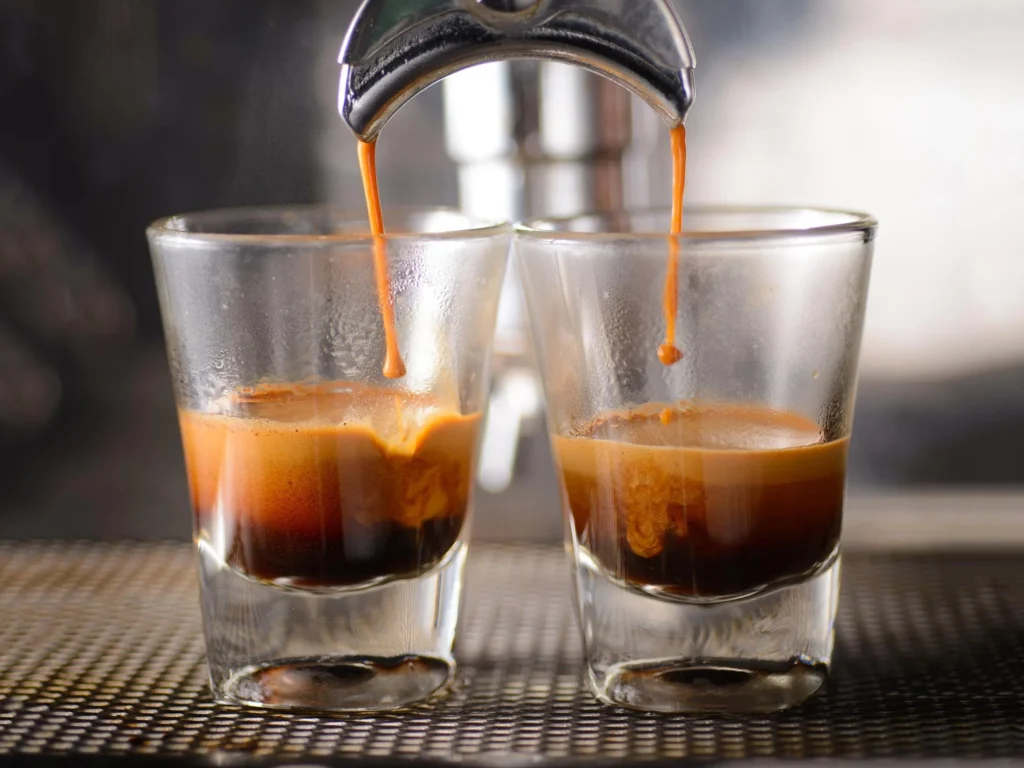
What is Under-Extraction?
Under-extraction occurs when the water doesn’t pull enough flavor from the coffee grounds, resulting in a shot that’s sour, acidic, and lacking body. This can be due to several factors like grind size, water temperature, brew time, and more.
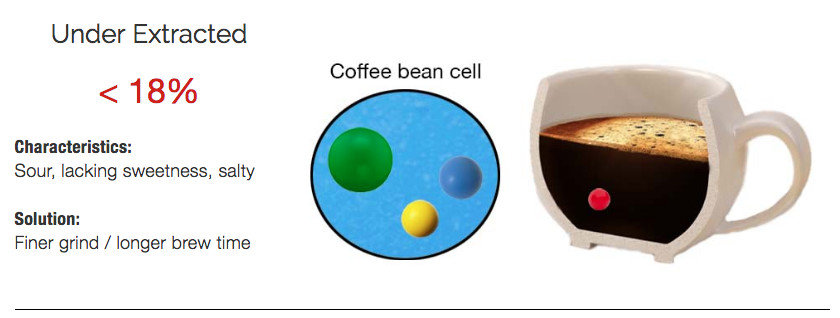
Under extraction occurs when your espresso shot brews too quickly, usually due to a grind that’s too coarse or a too-quick pour. It’s like making tea by just dipping the tea bag in hot water for a second—you’ll get some color, but none of that delightful flavor.
Identifying Under-Extraction
- Sour Taste: If your espresso tastes more like a lemon than a rich, balanced shot, you’ve got under-extraction.
- Thin Body: A watery, weak shot with no crema to speak of.
- Pale Color: The espresso will be lighter in color, more like a light brown or blonde.
- Fast Flow: The shot pulls too quickly, often in under 20 seconds.
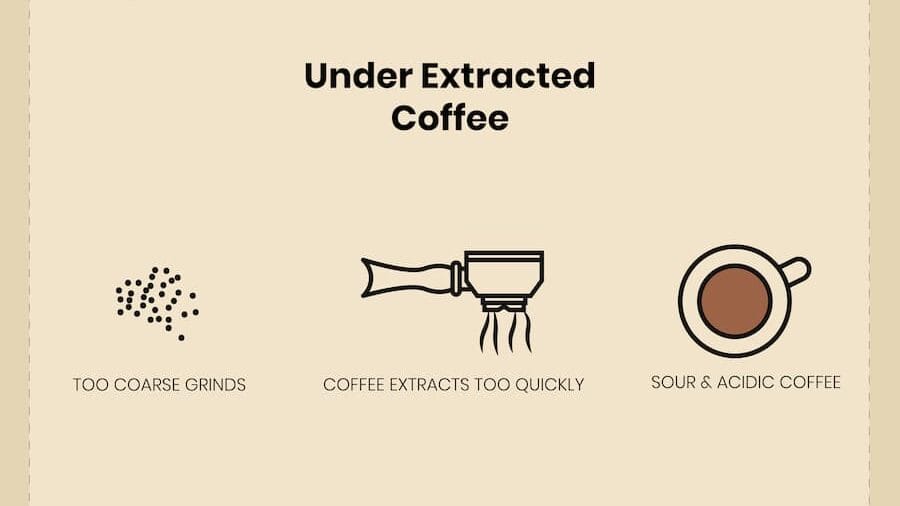
Causes of Under Extraction and How to Fix It
Causes of Under Extraction
- Grind Size: The grind size is crucial. If your coffee grounds are too coarse, the water flows through too quickly, not extracting enough flavor.
- Brew Time: This is the duration that the water is in contact with the coffee. A short brew time means the coffee doesn’t have enough time to extract properly.
- Tamp Pressure: Inconsistent or insufficient tamping pressure leads to uneven extraction, where water channels through the coffee puck too quickly.
- Dose: Using too little coffee results in a weak, under-extracted shot. The right amount ensures proper extraction.
- Water Temperature: Water that’s too cold doesn’t extract the coffee’s full flavor profile. The ideal temperature range is critical for proper extraction.
How to Fix It
- Adjust the Grind: Make your grind finer. This slows down the water flow, giving it more time to extract the flavors from the coffee.
- Increase Brew Time: Aim for a brew time of 25-30 seconds per shot. This allows enough time for the water to extract the coffee’s full range of flavors.
- Tamp it Down: Apply firm and even pressure when tamping your coffee grounds. This ensures a uniform puck and prevents water from channeling through too quickly.
- Dose Correctly: Use the right amount of coffee, typically around 18-20 grams for a double shot. This ensures there’s enough coffee to extract fully.
- Check Your Water: Use water heated to around 195-205°F (90-96°C). This temperature range is optimal for extracting the coffee’s flavors without burning it.
Practical Tips for Improvement
- Invest in a Good Grinder: A high-quality grinder ensures consistent particle size, which is essential to avoid under-extraction. Consistent grinds allow for even water flow and proper flavor extraction.
- Regular Maintenance: Clean your espresso machine regularly. Old coffee residues can affect the taste and quality of your espresso. Regular cleaning ensures all components function correctly and maintain the integrity of your coffee.
- Experiment and Adjust: Brewing coffee is both an art and a science. Continuously tweak your grind size, brew time, and water temperature to find the sweet spot that works best for your beans and equipment. Consistent experimentation and adjustment are key to mastering the perfect espresso shot.
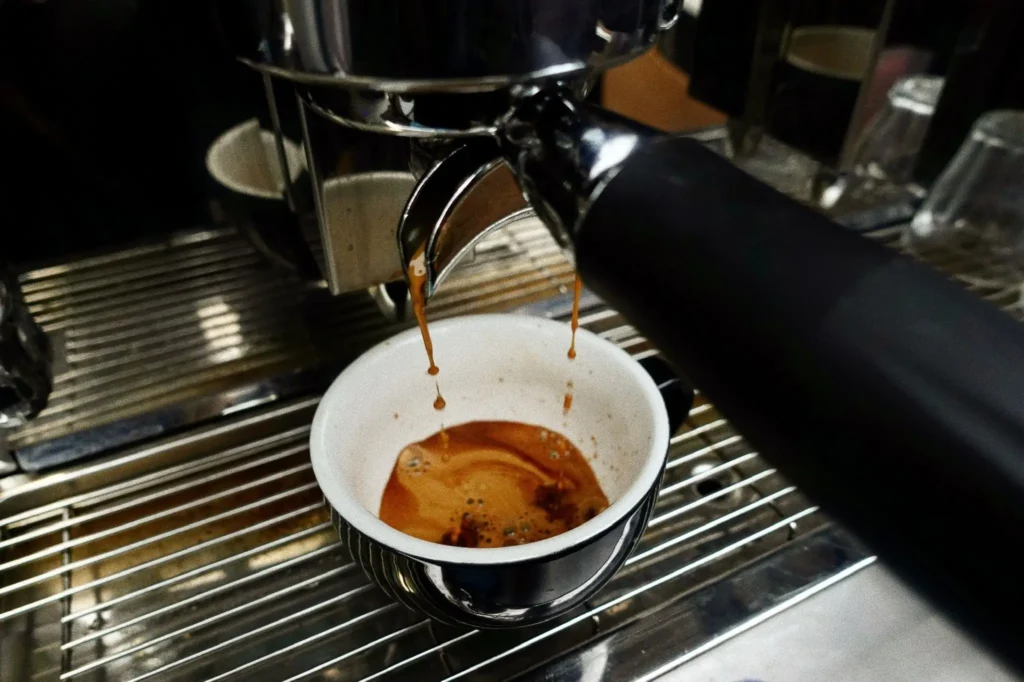
Final Thoughts
Achieving the perfect espresso shot requires patience and meticulous attention to detail. By understanding the causes of under-extraction and implementing the right fixes, you’ll be well on your way to consistently pulling great shots. Keep experimenting, tasting, and adjusting until you find that perfect balance of flavors. Remember, every variable matters, and mastering them can turn a good espresso into a great one. Happy brewing!
Disclosure: Our blog contains affiliate links to products. We may receive a commission for purchases made through these links. However, this does not impact our reviews and comparisons. We try our best to keep things fair and balanced, in order to help you make the best choice for you.

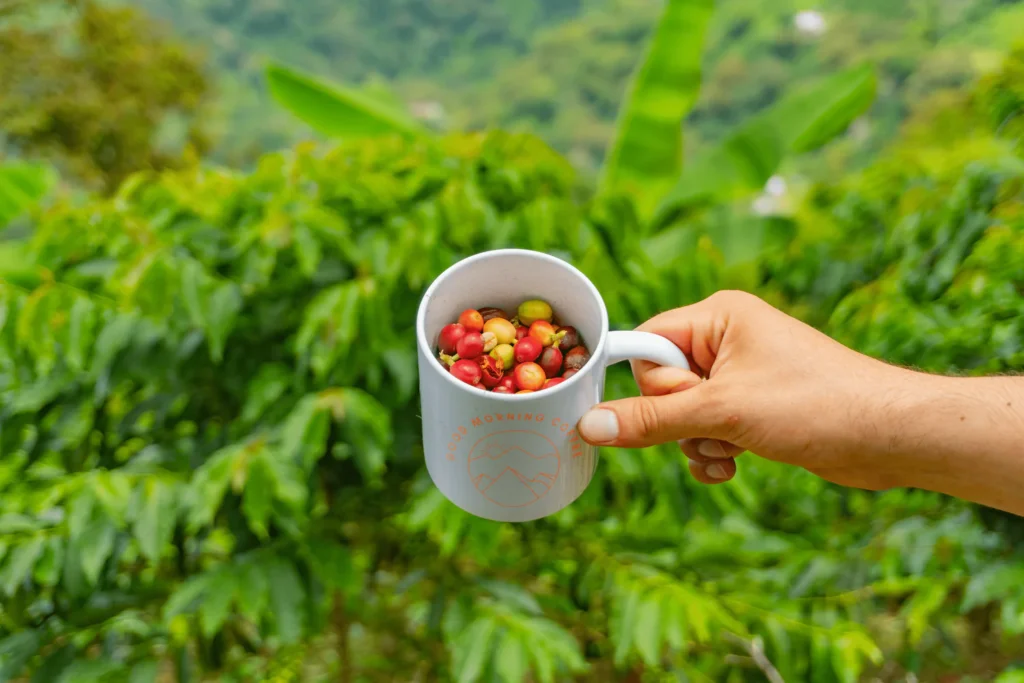
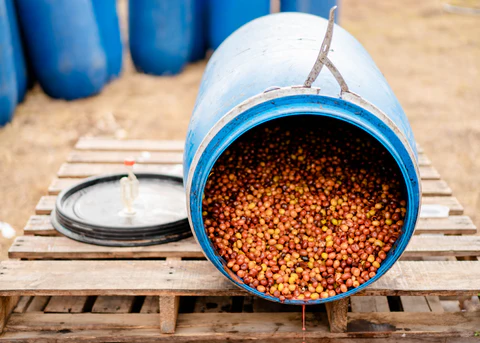
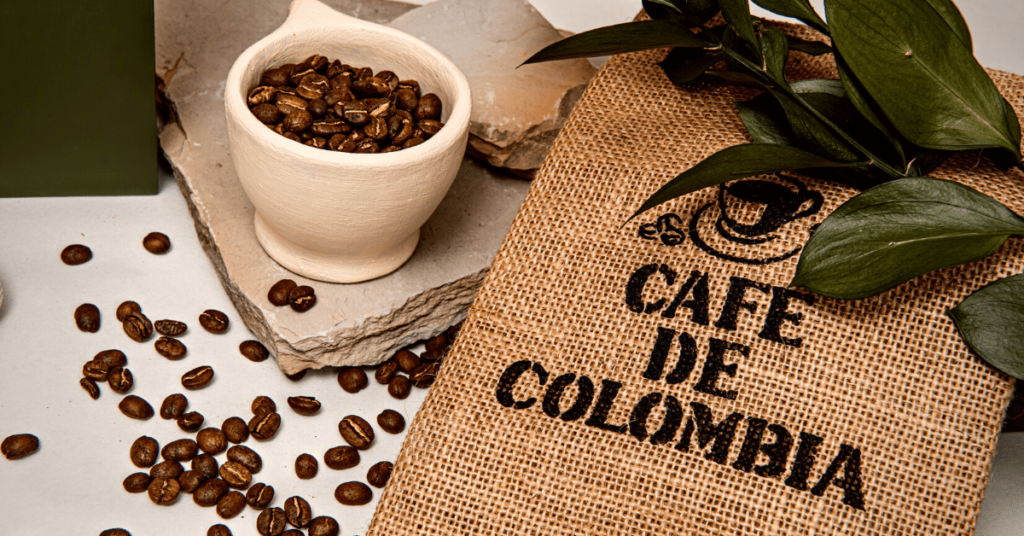
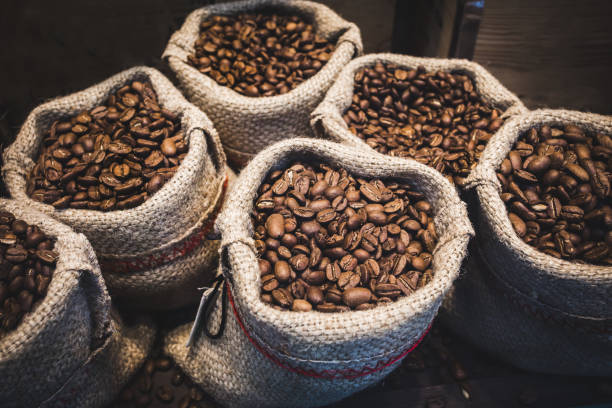

12 Responses